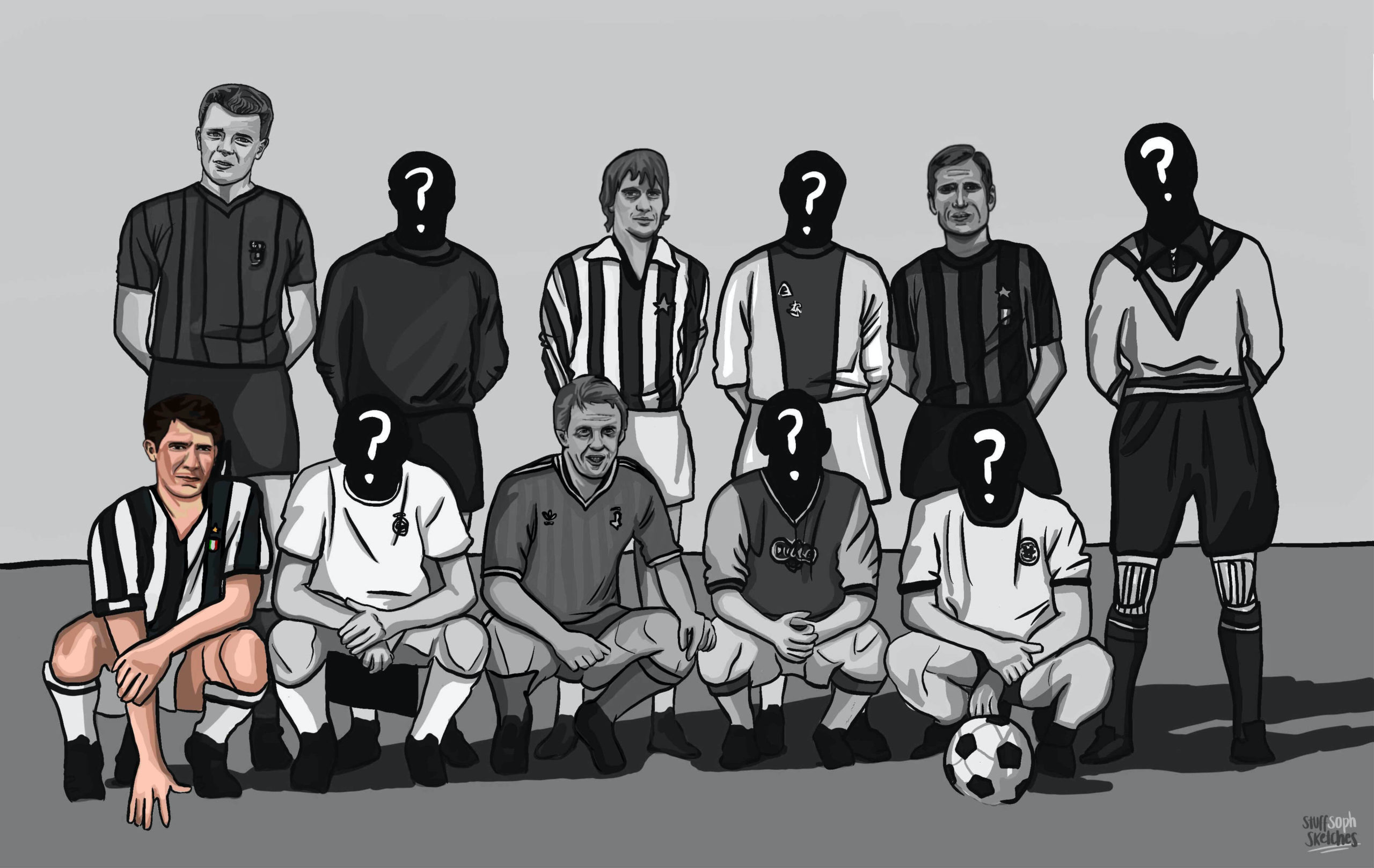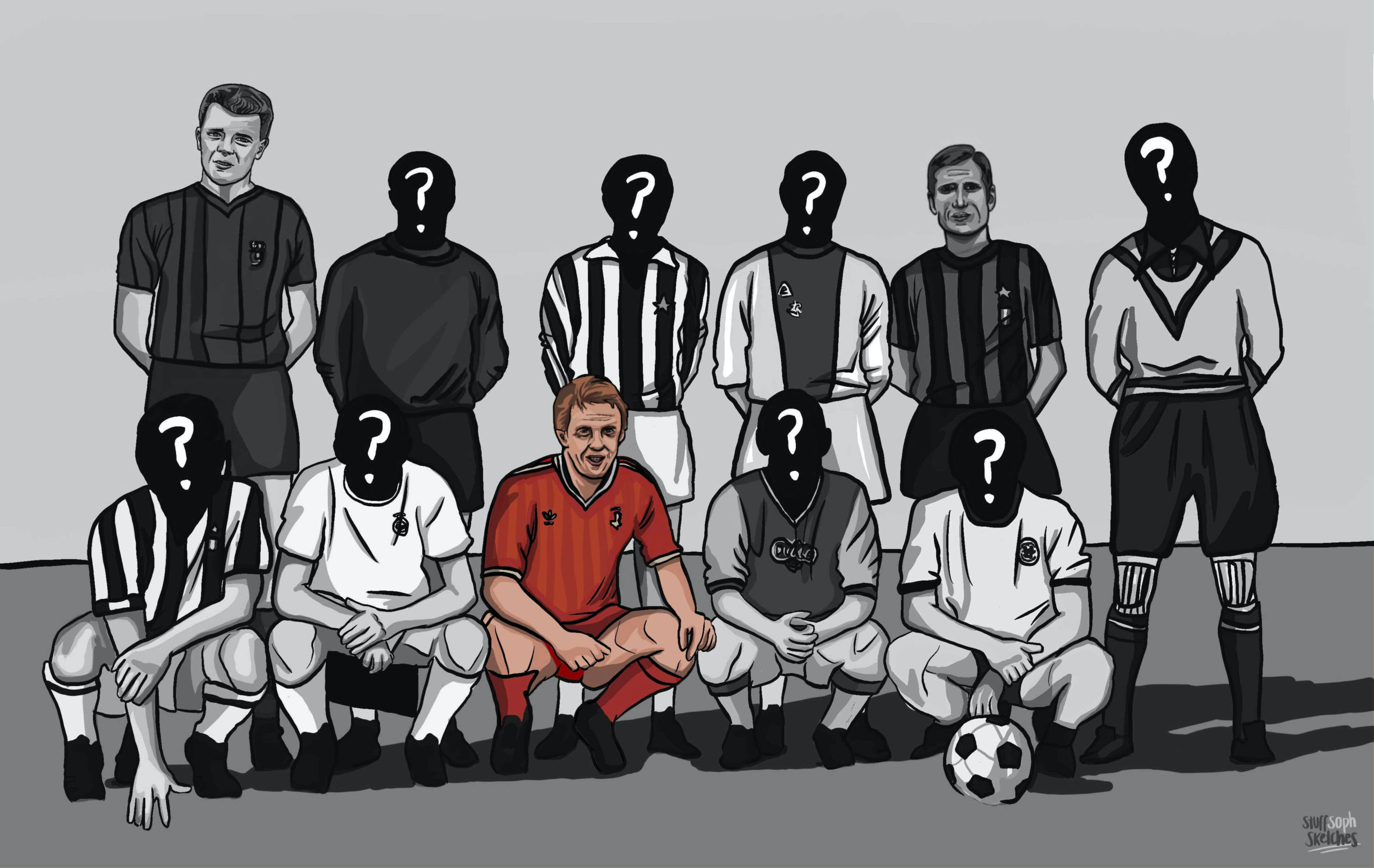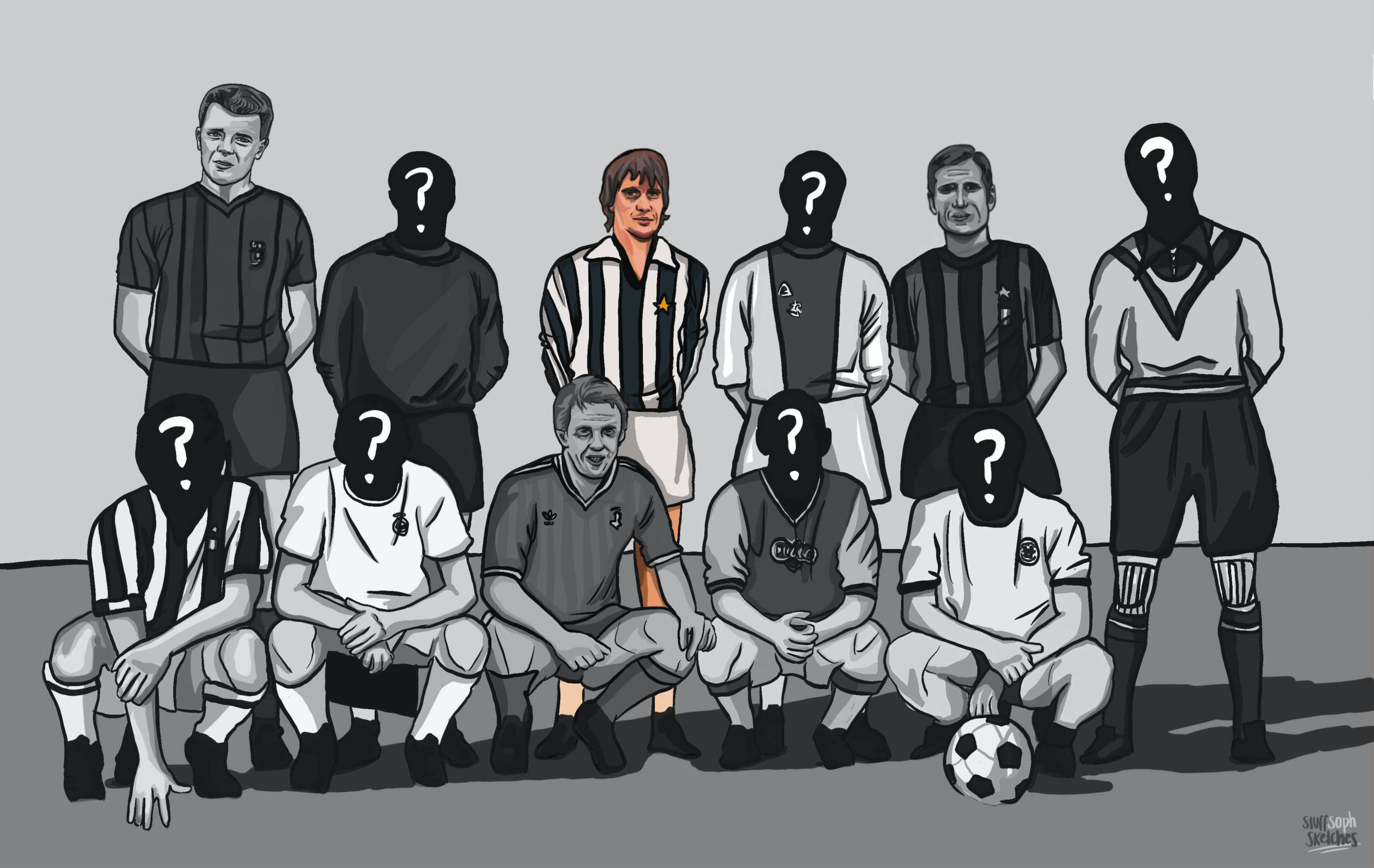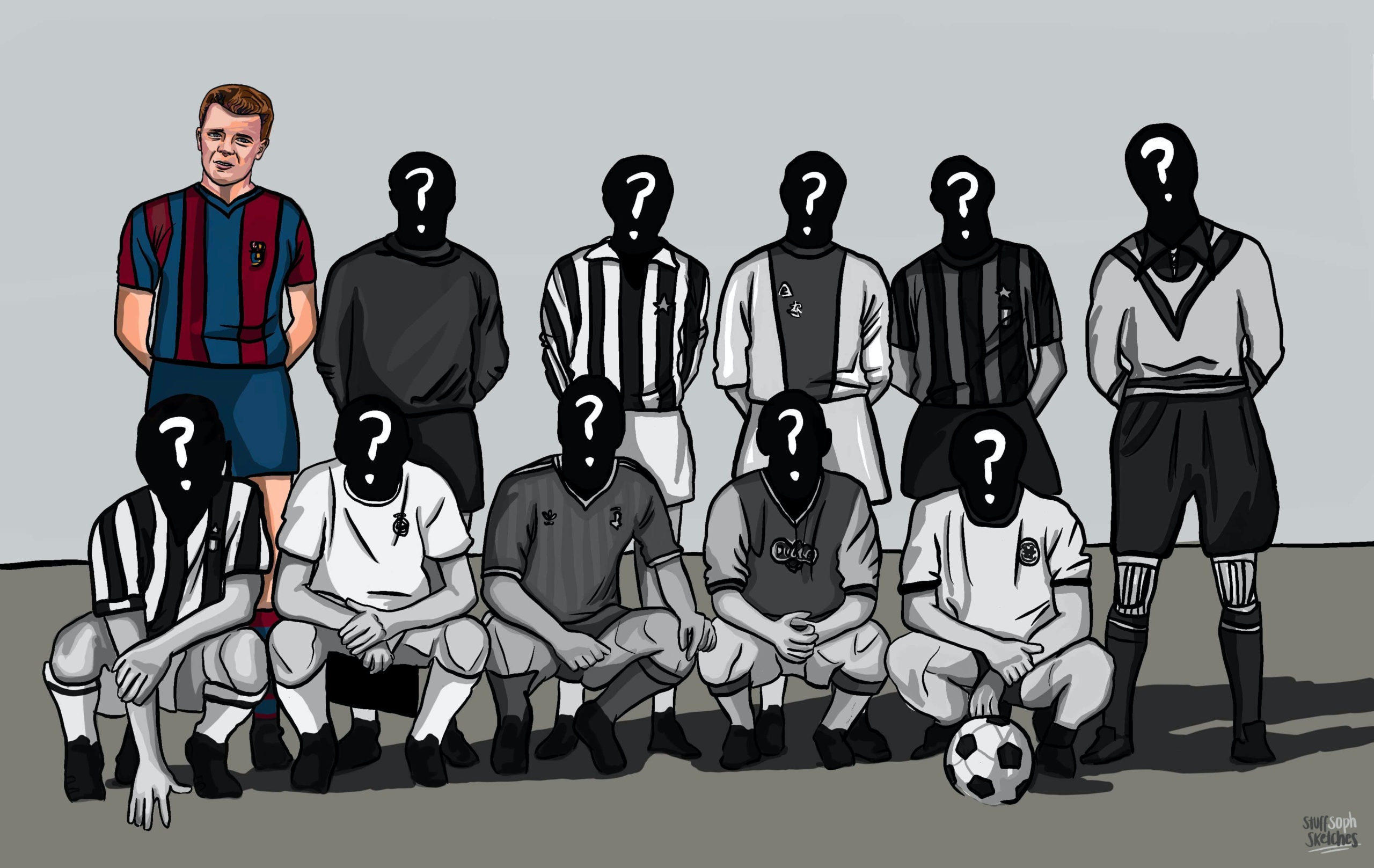In 2004, Pele announced his FIFA 100, a list of players that he considered to be the greatest of all time. Included in that list was a gap-toothed inside left, who for ten wonderful years was amongst the best players in the world. His fiery temper, coupled with his outrageous ability, made him one of the most dangerous forwards in the game during the 1950-60s. Lax in training, prone to outbursts, totally left footed and always with his socks rolled down on matchdays, Omar Sivori oozed the devil may care attitude that football fans love. This enigmatic superstar enjoyed taunting his opponents as he humiliated them, nutmegging them over and over, and never failing to shout about his own successes. Unlike others, Sivori had the talent to match his ego and his spectacular Serie A career paved the way for another Argentine maverick almost twenty years later – Diego Maradona. Despite Sivori’s unquestionable talent and success, Sivori is little known by British football fans today, who undoubtedly believe that Jack Grealish created the socks rolled down look…
Sivori came to prominence whilst playing for River Plate in the mid 1950s, inspiring River to win league titles in 1955, 1956 and 1957. Alongside Humberto Maschio and Antonio Valentin Angelillo, the three forwards – nicknamed the “Angels with Dirty Faces” or Trio de la Muerte (The Death Trio) – helped Argentina to win the Copa America in 1957, with the triad scoring twenty goals in six matches and Sivori being named as the Player of the Tournament. It was the trio’s performance in this specific victory that led many to believe that Argentina were favourites to win the World Cup in 1958, having beaten Brazil 3-0 on route to the trophy. However, shortly after winning, the “Angels” would all make big money moves to Europe. Maschio was signed by Bologna, Angelillo by Inter, and Sivori moved to Juventus for a record-breaking fee of £91,000 (10 million pesos). Sadly, their dreams of success in the World Cup of 1958 were crushed, as the Argentine FA had a policy that meant they would not select any players at clubs outside of Argentina. The trio were forced to watch on as their country failed to progress out of the group stages and their arch-rivals Brazil, spurred on by the fresh feet of a seventeen-year old Pelé, won their first World Cup.
Football is a sport that needs mavericks, perhaps now more than ever.
After six years without a title and an embarrassing ninth place finish the season before, Juventus (desperate for success) partnered the enigmatic Sivori alongside the “gentle giant” John Charles who signed from Leeds United for £65,000, and the “one club man” Giampiero Boniperti. The birth of this new triumvirate would inspire Juventus to three league titles in four years, with Charles and Sivori scoring fifty goals between them in their first and third seasons together. Sivori netted twenty-seven times in the 1959-60 season alone and scored six goals in a record 9-1 victory over Internazionale in 1961. That said, it must be noted that Inter had fielded a youth team for the 9-1 defeat and it was also one of the first appearances for Inter’s legendary left-back Giacinto Facchetti.
Nicknamed el Cabezón (Big Head) and el Gran Zurdo (The Great Left Foot) by his admirers in Argentina and Italy, Sivori liked nothing more than embarrassing his opposition with his movement and the perfection of the nutmeg. Unfortunately, Sivori’s explosive temper was just as impressive as his footballing skills. The frontman would often seek fights with referees, opponents and managers alike. He set records for sending’s off (ten) and games banned (thirty-three). John Charles is said to have once slapped Sivori in the face to calm him down before carrying him off the pitch to prevent him from attacking the referee.
In his autobiography, Charles depicted Sivori as a hard man who could flare up in an instant and wasn’t afraid to kick a defender or two. He noted that Sivori was not only antagonised by attacks against himself but would also seek retribution for fouls on Charles as well, knowing that the man wouldn’t react himself. In spite of his temper, Charles cited Sivori as one of the greatest players he had ever played with. Sandro Mazzola, the Inter playmaker from their great team in the 60s, went even further by stating that ‘Sivori was better than Maradona and was the man who defined the new role of the trequartista’ (the Number 10 who plays in the hole behind the main striker).
Sivori scored 135 goals for Juventus, including the goal which condemned Real Madrid to their first ever home defeat in the Champions Cup in 1962. He won the Ballon d’Or in 1961, and controversially, went on to represent Italy in the World Cup of 1962. However, one too many run-ins with the authoritarian head coach Heriberto Herrera saw Sivori sold to Napoli in 1965.
Sivori was worshipped like a God in Naples by the football crazy locals, with crowds of Neapolitans, totalling as many as 20,000, attending training sessions just to see him play. Such hero-worship went unequalled in Naples until the arrival of Diego Maradona nearly two decades later, despite the fact that Sivori’s time in Naples was not particularly successful. Injuries and arguments with his manager resulted in Sivori only playing sixty-four times for Napoli across four years. He did give the Napoli faithful a good laugh, when he tied his laces slowly in front of his former manager Herrera when Juventus visited. Laughs faded however in his last game for Napoli: playing Juventus again, Sivori was sent off for kicking Erminio Favalli. The incident resulted in Sivori hysterically crying and throwing himself to the floor on the field. He was faced with a six-game ban, after which he decided to return to Argentina.
Robbed of seeing Sivori represent Argentina at the World Cup of 1958, the world was offered another opportunity as Sivori was eligible and selected to play for Italy during the World Cup of 1962. Using the controversial policy of oriundi, Italy included Sivori among other players of South American origin in their World Cup squad. Disappointingly, Italy failed to progress to the knockout stage of the competition, despite boasting a squad that also included the young Milan star Gianni Rivera, the Brazilian forward José Altafini, as well as old “Angels” teammate Maschio. In total, Sivori only played twenty-seven international matches, scoring seventeen goals for Argentina and Italy.
In total, Sivori played 248 games in Italy, scoring 147 goals and representing his adopted nation nine times. Whilst at Juventus, Sivori’s achievements were countless: the Serie A Golden Boot (1960), the Ballon d’Or (1961), three Serie A titles, two Coppa Italia and one Coppa delle Alpi (albeit defunct now). This added to his three Primera División titles won whilst playing at River, another Coppa delle Apli with Napoli, and the Copa America in 1957 when playing for Argentina. This multitude of conquests suggests that throughout a ten-year period Sivori was one of the best players in the world. His lax attitude toward training, brash confidence and fiery personality may have upset and angered his coaches, but his ability could never be questioned. The respected Italian Sports journalist, Gianni Brera, once stated that Sivori ‘only has a left foot but he uses it like a big and delicate paint brush’. Football is a sport that needs mavericks, perhaps now more than ever, and with Savori, the footballing world had a special talent that we might never see again. Sivori deserves to be remembered by everyone as one of the all-time footballing greats. If you are in any doubt, simply ask yourselves: how many contemporary players can you think of who, if they had played at the World Cup in 1958, might have stolen Pelé’s thunder?



